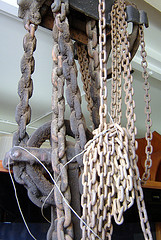Lesson 4: Human Rights
ETHICS CRIMINAL INVESTIGATION HUMAN RIGHTS ISSUES
Key Words
- Concent
- impartiality
- Mininmum use of force
- Credibility
- Negotiation and Mediation.}}
INTRODUCTION
“NO FREEMAN SHALL BE TAKEN, IMPRISONED, OUTLAWED, EXILED OR IN ANY WAY DESTROYED, NOR WILL WE PROCEED AGAINST OR PROSECUTE HIM, EXCEPT BY THE LAWFUL JUDGEMENT OF HIS EQUALS AND BY THE LAW OF THE LAND” (MAGNA CARTA 1215)
These very points are reemphasized by Universal Standards for human rights, law enforcement, international relations and international law:
WHAT THEN DO WE MEAN BY “HUMAN RIGHTS”?
Definition
Human Rights are universal legal guarantees protecting individuals and groups against actions by governments which interfere with fundamental freedoms and human dignity.
-The right to life
-Right to adequate food, shelter, clothing and social security
- Freedom of thought and religion
- Freedom of movement
- Freedom of discrimination
- Right to equal protection of the law
- The right to a fair trail
- Freedom from arbitrary interference with privacy, family, home or correspondence
A HUMAN RIGHTS VIOLATIONIS A GOVERNMENTAL TRANSGRESSION OF RIGHTS GUARANTEED BY INTERNATIONAL, REGIONAL AND NATIONAL LAW SOURCES OF HUMAN RIGHTS LAW CUSTOMARY INTERNATIONAL LAW
General and consistent practice of states followed because of sense of legal obligation
Includes provisions of the UNIVERSAL DECLARATION OF HUMAN RIGHTS TREATY LAW
- Covenant on Civil and Political Rights
- Covenant on Economic, Social and Cultural Rights
- Convention Against Torture
- Convention on Elimination of all forms of Racial Discrimination
- Convention on the Rights of the Child
etc. INSTEAD OF PUTTING OTHERS IN THEIR PLACE,PUT YOURSELFIN THEIR PLACE.
POLICE INVESTIGATIONS
KEYPOINTS Presumption of innocence Right to a fair trial Right to security of the person Respect for confidentiality of the information Right not to confess or testify against self Absolute prohibition of torture, cruel, inhuman, degrading treatment
PRESUMPTION OF INNOCENCE
Everyone charged with criminal offence shall have the right to be presumed innocent until proved guilty according to law.
(ICCPR art.14)
RIGHT TO A FAIR TRIAL To be informed promptly and in detail of the charge against him or her
To be tried without undue delay
To examine, or have examined, the witnesses against him or her
To be free from compulsion to testify against self, or to confess guilty DEFINITION OF TORTURE TORTURE Torture is never justified under any circumstances, and no public official has any defense available to him or her for committing a crime. No exceptional circumstances whatsoever, whether a state of war or threat of war, internal political instability or any other public emergency, may be invoked as a justification of torture. An order from a superior officer or a public authority may not be invoked as a justification of torture. ARREST International Covenant on Civil and Political Rights (ICCPR)
Body of Principles for the Protection of All Persons under any Form of detention or Imprisonment (BoP)
Declaration on the Protection of All Persons from Enforced Disappearance (DD) RIGHTS RELATING TO ARREST PROHIBITION OF ARBITRARY ARREST
not based on legal grounds not respecting legal procedures not reasonable/appropriate in the circumstances discriminatory without fair, solid and substantial cause THE ARRESTING Ethiopia POLICE OFFICER SHOULD TELL THE ARRESTED PERSON OF THEIR RIGHTS: The reason for arrest The right to remain silent and make no statement The right, of the suspect, to inform family or employer of the detention The right to contact a lawyer before any statements to the arresting authority DETENTION International Covenant on Civil and Political Rights (ICCPR) Standard Minimum Rules for the Treatment of Prisoners (SMR) Body of Principles for the Protection of All Persons under any Form of Detention or Imprisonment (BoP) Definitions DETAINEE
Person deprived of personal liberty pending trial (unconvicted) PRISONER
Person deprived of personal liberty as a result of conviction for an offence (convicted) PRE-TRIAL DETENTION SHOULD BE EXCEPTION, RATHER THAN THE RULE “It shall not be the general rule that persons awaiting trial shall be detained in custody, but release may be subject to guarantees to appear for trial, at any stage of the judicial proceedings, and, should occasion arise, for execution of the judgement.” (ICCPR) CLASSIFICATION AND SEGREGATION UNCONVICTED 1.women 2.juveniles 3.ordinary population 4.convicted 5.men 6.adults 7.dangerous 8.detainees 9.juvenile offenders
Never give out a juvenile’s name to anyone except the judge and prosecutor arrest a juvenile only as a last resort parents are to be notified of any arrest, detention, transfer, sickness, injury or death the human rights of women and children violence against women and children is a crime and must be treated as such, including when it occurs within the family women and children as victims women and children who are victims of domestic and other forms of violence are entitled to the same protection as other victims of crime People (including husbands and partners) who subject women and children to domestic or other forms of violence must be dealt with under the law just like other offenders
Now is the time to reflect on these matters and go foreword as a leader in your area of responsibility.
